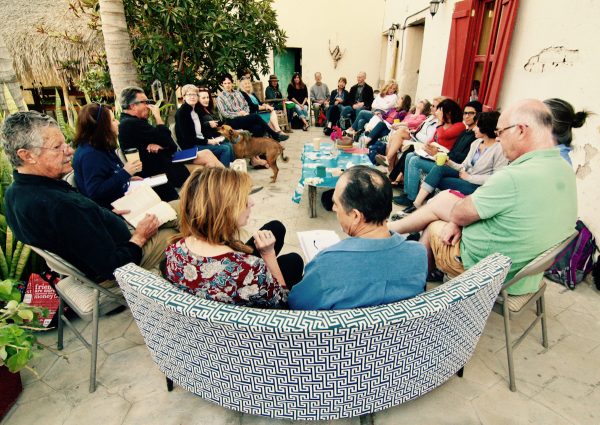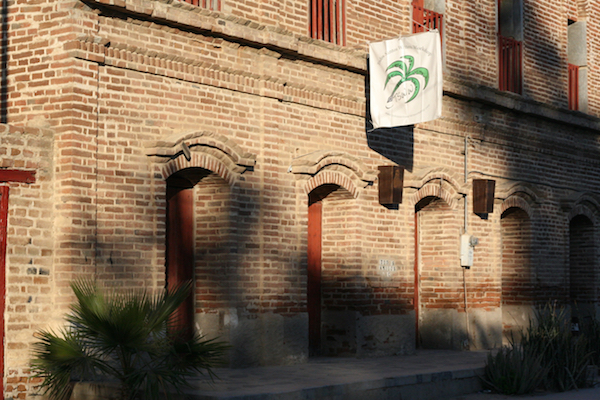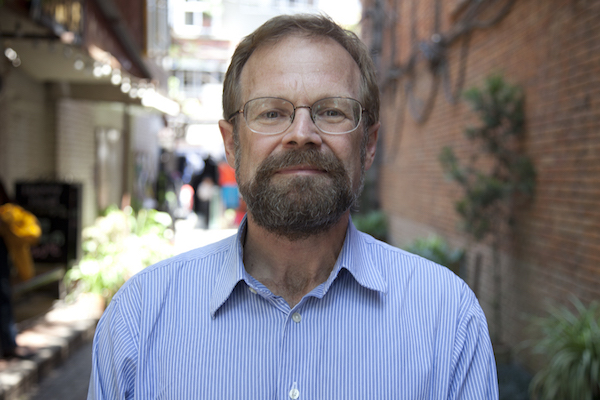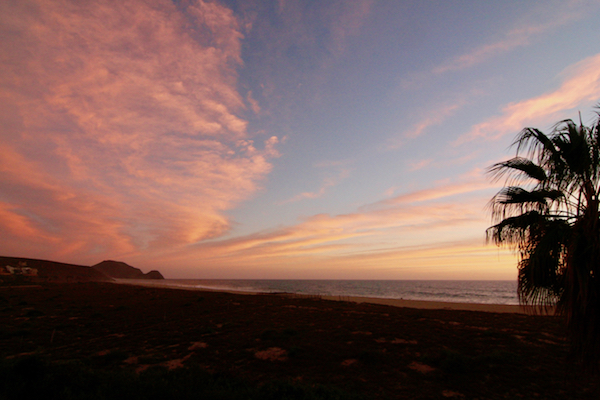[alert type=alert-white ]Please consider making a tax-deductible donation now so we can keep publishing strong creative voices.[/alert]
“The most beautiful stories always start with wreckage,” wrote Jack London. Hurricane Lidia, one of this stormy season’s least reported disasters, crashed hard into the southern tip of Baja California, cutting a painful swath of wreckage. But in its wake, Todos Santos, a small fishing and farming village an hour north of Cabo San Lucas, will soon embrace beautiful stories, once again. That’s because in January, twenty to thirty writers will converge on this lush oasis perched between mountain, desert and sea for the fifth annual Todos Santos Writers Workshop.
There will be plenty of stories to go around, including my own.

So named in hopes of maximum heavenly protection, Todos Santos is where my family and I have lived, off and on, for the past thirty years. Perhaps thanks to the saints, we usually escape the late summer chubascos that roar up the mainland’s Pacific coast. But the climate changed and it was only two years ago, following the wrath of Hurricane Odile, we found the ancient tamarind tree in the courtyard of our 19th Century hacienda felled by the storm. Neighbors counted losses far worse.
Even so, the tamarind was a page in our own beautiful story, shading inhabitants of this haunted old house—a local landmark dubbed Casa Dracula—for more years than anyone can count. Despite archival searches, the exact age of the imposing adobe brick edifice has never been established. Under the tamarind, though, one could imagine generations of children on the swing slung from a sturdy limb, my own son among them, youth and age ticking by with each pendulum sway. Our neighbor Don Yeyo, a wizened veteran of the Revolución, used to sit watching the children play, and he’d say, “When I was their age, this house was already old.”
He’s long gone now. And suddenly, in Odile’s’s wake, the tamarind’s splintered stump stood evidentiary witness to a natural catastrophe none of us can avoid. “In my end is my beginning,” as T.S. Eliot wrote, or as Don Yeyo always used to say, “Asi es la vida.”

Our house of the spirits, headquarters for the writers workshop, was spared this year, gracias a Dios. But the town is under assault from economic forces equally as strong as the seasonal wind and rain. Poverty in the nearby cities of La Paz and Los Cabos, a consequence of two decades of unbridled tourist development, invites the chaos and violence of the mainland’s drug cartels. High in the Sierra de la Laguna, a pine-covered mountain range rising like a spine along the length of the southern Baja peninsula, gold mining companies threaten the watershed of all the cities, villages and farms of Baja Sur.
In Todos Santos, a Denver-based developer bulldozed a pristine beachside area for a boutique hotel, displacing the local fishing fleet in Phase One of a plan to build more than 4000 homes. The development would triple the population and place an impossible burden on the town’s already stressed resources.
Todosanteños are mobilized and on the move to defend our pueblo magico. But help is needed. And what can writers do? If, as Eliot had it, our end is our beginning, and in the beginning was the Word, can words save our planet Earth from its end?
If anyone in our upcoming lineup of visiting literary talents can answer that question, it will be Christopher Merrill, director of the University of Iowa’s International Writing Program. Welcoming the award-winning poet, translator and journalist to our writers workshop, we’ll be looking to Merrill to inaugurate and lead our poetry workshop.

His recent memoir, Self-Portrait With Dogwood, is a soulful meditation on man’s place in nature. For inspiration we may look to Merrill’s poem “Coordinates” about “a map on which the names have been erased…” a cry of alarm for those lost in a world of disaster:
Cicadas emerge, numbered and ranked, their clear
Wings beating—a light arriving from a star
Glimpsed from the depths of an abandoned mine.
We won’t make it out alive, the guide said
And tumbled down the shaft. What remains?
A shred of plastic flapping in the nest
The birds left in the hedge, a speckled egg
That never hatched, a file of summonses
Lost in the flood. The trees hum in the dark.
Pray for the guide. Pray for everyone.
With an offering of mezcal to the gods, to El Diablo, and a shot or two for ourselves, we’ll convene this winter in the town of All Saints where gray whales cavort just offshore. Tia Maria’s tamales come warm in a chipped ceramic pot, and no painter’s palette could match the sky at sunset. Tell a few beautiful stories. Replant a tree. Begin again.

